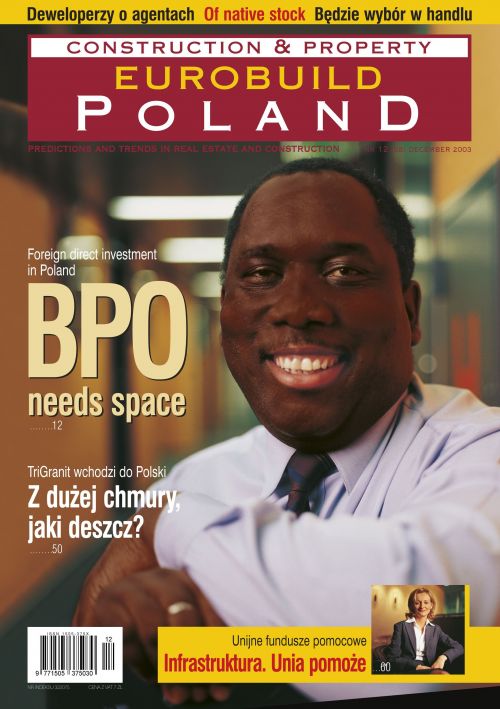Local authorities will be the major beneficiaries of community aid. Out of a
total of EUR 12.8 bln, which is the budget for Poland for the years
2004-2006, nearly EUR 3 bln (under the Integrated Regional Development
Operational Programme; IRDOP) will be allocated for regional projects to be
implemented by local government.
Entrepreneurs can benefit from EU funds in two ways: (1) by establishing
co-operation with a local authority under a public-private partnership model
or (2) by investing independently, in which case the infrastructure is part
of a project involving the modernisation of an entrepreneur's manufacturing
facility.
Either with local
government...
The public-private partnership formula is much more attractive in terms of
the funds available. The upper threshold of subsidies granted to local
government projects will be 75 per cent of the eligible costs1 and may be as
high as 80 per cent for projects of vital importance to a




























































